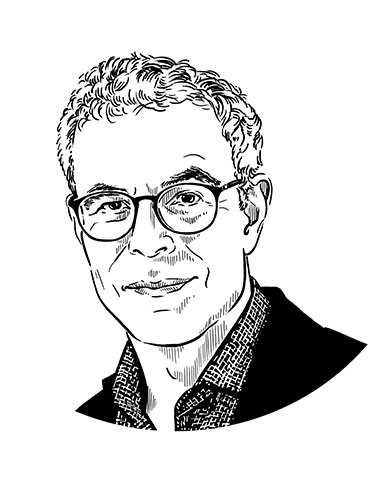What does neutrality mean for Switzerland, Laurent Goetschel?
Text: Laurent Goetschel
From participation in international alliances to its stance on the war in Ukraine – Swiss neutrality is in a constant state of renegotiation within Switzerland. A historian and a political scientist reflect on how the role of Switzerland in the international community has developed over time and how it is defined today.
With the Russian attack on Ukraine, Swiss neutrality has acquired a bad name. It has come to be viewed as synonymous with indifference, opportunism and cowardice. Worse still, some advocates of neutrality see it as a means of justifying their pro-Russian stance in the war. Many people simply know too little about neutrality, while others misuse it for their own political purposes.
Neutrality is a foreign policy concept rooted in international law. It consists of rules and their implementation through policy. At the legal heart of it is the notion that neutral states do not take part in acts of war by third parties. Until well into the 20th century, wars were permitted and were a routine part of international politics. Neutrality served as a counterpoint to this. It means having the right to “say no to war”. Neutral states do not see participation in wars as an appropriate way of achieving their foreign and security policy goals. However, neutrality has nothing to do with pacificism. If neutral states are attacked, they may defend themselves.
Switzerland speaks of “armed neutrality” and uses this to justify its substantial military spending. Neutrality is also no obstacle to participation in collective security measures such as United Nations (UN) military sanctions. Its application is limited to wars between third countries. When a permanent member of the UN Security Council wages war, it can use its veto to render the UN powerless. This happened in 2003 when the USA invaded Iraq and in February 2022 when Russia attacked Ukraine. In situations like this, it is especially important for Switzerland to preserve the military core of its neutrality by not sending either troops or weapons to the conflict zone.
However, states differ when it comes to neutrality policy, on which the credibility of their neutrality depends. They cannot join a military alliance, as this would involve entering into commitments incompatible with neutrality in times of war. In other respects, neutral countries can take a flexible approach to foreign policy. Other neutral states such as Ireland and Austria are members of the European Union and joined the UN much earlier than Switzerland. Neutral states may also impose economic sanctions on belligerents, even if those are not mandated by the UN. Switzerland did this against Serbia in the 1990s and has done so recently against Russia. It must assess on a case-by-case basis how strong a stance it wants to adopt in order to achieve its foreign policy goals.
Although neutrality entails refraining from military action, this is counterbalanced by the fact that it facilitates humanitarian interventions and mediation between belligerents. Neutral states are therefore not indifferent – they get involved in other ways. Far from being cowards, they are showing the courage to be different; they also have to defend their position politically. Although wars are an anachronism, given the urgent global problems that we face, as long as they are waged, neutrality will remain a meaningful concept. It is founded on international law and prioritizes peaceful means of resolving conflicts between states. Neutral states complement the role of other countries. Switzerland does this by acting as a host, protector and mediator. Neutral states are also predestined to be active players in developing the international order. Switzerland’s upcoming membership of the UN Security Council in 2023–2024 provides an excellent opportunity to pursue this goal.
Laurent Goetschel is Professor of Political Science and Director of the Swiss peace foundation swisspeace. He is also a member of the Commission for Research Partnerships with Developing Countries (KFPE). His research focuses on questions relating to peace and conflict and on foreign policy analysis.
More articles in the current issue of UNI NOVA.

